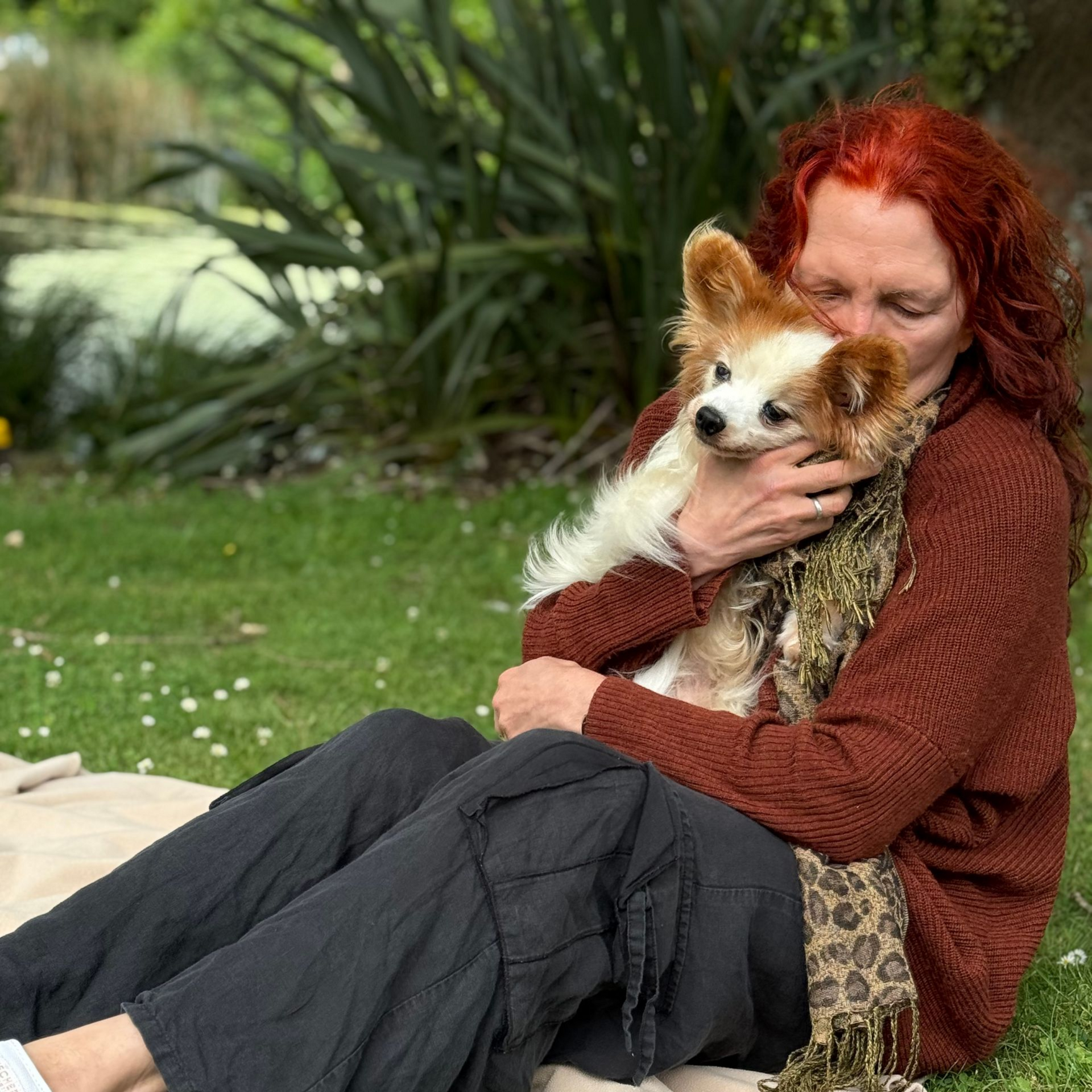Thousands Sign Up to 'Better Wellington' Movement, Seeking Urgent Cessation to Unaffordable Rates, Economic Decay and 'Wrong Direction' of City Council
The now-thousands of Wellingtonians who have signed up to Better Wellington and its mission to rectify the City’s economic woes by cleaning up its local governance, is "a clear sign of residents’ recognition of a truly urgent situation”.
Last September, I wrote a piece on how this small group – established to expose the “woke idiocy and rampant profligacy” of the Wellington City Council – was generating a steady following of disgruntled ratepayers.
No longer is it a “small group”. Its numbers are swelling by the day. While a large number of supporters have formally entered their names on the group’s website, I’m told that this represents only around 10 percent of those concerned residents who have actively registered their support of the group and its objectives.
Founding member, Alistair Boyce (best-known as the long-time publican of the famous Backbencher pub located opposite Parliament), says the City is fast approaching the eye of the perfect storm.
“We’ve had a 20 percent rates increase at the same time as the cost of living crisis has reduced disposable income levels," he explains. "There’s rampant national inflation. That’s caused a downturn in consumer spending.
“Mortgage rates are up (meaning many people are on the hook for more than their properties are worth), and despite property values having dropped, the Council has not only hiked up rates, but it’s going to need to continue to do so, to fund unnecessary, not-core-to-business projects, the funding of which relies on a substantially growing population base, that isn’t growing . . . it’s shrinking.
“And the Council’s insane ‘Golden Mile’ pet project, that is not well-supported by Wellingtonians, along with ongoing cycleway construction disruptions, is causing ongoing access issues around the CBD. That, in turn, is creating a ‘no go’ zone for any new retail or hospitality investment, and causing a mass exodus of others in that sector.
“And on top of all of that, and to a large degree because of all of that, homelessness is resulting in destitute people camping in shop doorways – which is a downward spiral in terms of its effect on business confidence, retail trade and investment, and hospitality venue desirability.
“We’re heading for an economic implosion – and it’s being led by crazed, out-of-control, unaccountable, ideological Councillor and bureaucratic decisions.”
‘People Just Can’t Afford to Live in This City’
It isn’t just a macro-economic situation. Boyce says Wellington is fundamentally unaffordable for anyone on a “middle-level income”.
There’s real pain and broad-scale hardship around the suburbs of Wellington – not least of all that caused by the most recent rate increases of over 20 percent, which impact not only property owners, but tenants too, with the usual flow-on effects on rent.
For those on fixed incomes or living on superannuation, in many cases, it’s now financially crippling.
By way of example, Better Wellington has received numerous emails from pensioners saying they’re cutting down not only on power usage but even on food, just to afford their rates bill (and we’re not even in the depths of winter yet).
For an increasing percentage of home owners, the threat of having to sell up is now a looming reality. And the timing isn’t good: The Council has, this year, devalued Wellington properties by around 25 percent. Further still, with the mass exodus from Wellington, the supply of houses for sale also exceeds buyer demand, with some suburbs seeing a drop in sale prices in the order of several hundred thousand dollars.
Council management remains deaf to the complete unsustainability of the situation, and to the cruel and unusual levels of pain it is inflicting on the city's residents: One Better Wellington supporter contacted Wellington City Council to alert them to their difficulty to service the increase in their rates bill. They were told to “get a reverse mortgage”.
Councillors & Management ‘Blind to Reality’
Boyce says that despite the clear and present “population de-growth”, the Council is ploughing ahead with an agenda based on the “totally out-of-touch” projection of population growth of between 30,000 and 80,000 over the term of its current Long-Term Plan.
“So, in effect, a total populace of fewer residents is going to be called upon to fund this agenda. And it’s an agenda that a significant proportion of the populace has nil or little interest in. And certainly not in preference to functional public transport, water mains that don’t burst, sewerage systems that don’t overflow, and other core needs.”
The council is close to being insolvent, Boyce says.
“The City is in debt to the extent that Wellingtonians are paying around approximately $2 million in interest on loans each week.
“We have their pet projects and ideologically-driven ‘initiatives’ like an organic waste bin weekly collection and the intended elimination of vehicular traffic in favour of cycleways, in a city that’s topographically and weather-wise highly unsuited to it – apart from servicing the wealthy who can still afford to live in the inner city and/or who can afford e-bikes and special riding gear. Kids’ and families’ usage of cycling, in general, as a transport alternative is quite obviously minimal.
“And, of course, there’s the highly unpopular ‘Golden Mile’, with both its during-construction, and ongoing, severe impacts on CBD businesses . . . cutting out all car parks and blowing millions upon millions of dollars in a project that could take up to 10 years . . . and then result in nothing other than reduced viability of commerce at its conclusion, should it actually proceed in full.
“I mean, it's economic and ideologically-based insanity. You have, by way of a key example, a hospitality sector that is already bleeding – a sector that is what made Wellington the vibrant place it once was, and still should be.
“Hospo and retail are what attracts people to the CBD in the first place, and for those who work there, it’s what keeps them there after-hours, spending substantial chunks of their disposable income there.”
‘Imported, International Agendas’
On the other side of the coin, says Boyce, is all the cost items that should be core business for the Council – but that are being sorely neglected – essential infrastructure needs like better traffic flows and parking options around the CBD (not worse and less, in favour of more cycleways), and the maintenance and upgrading of currently decrepit water and sewerage systems.
These are all reflective of International agendas that are being imported into Councils – pervading, underlying agendas like the United Nations’ Sustainable Development Goals (SDGs) – that have no concern for either the viability or the vibrancy of individual cities like Wellington.
He says that if, after the next local body elections, the City is subjected to another three years of misguided, political agenda-driven councilors, “Wellington will become a ghost town; its CBD will be in terminal decline”.
Business Leaders in Agreement
It would appear that – if the following enlightening NewstalkZB “business panel” interview from a month ago is anything to go by – business sector leaders are also desperately trying to sound the alarm bell.
The founder of Wellington-based IT success story, Raygun, John-Daniel Trask, says he wouldn’t start a business in the City today, describing its “abject wokeness” as having reached the point of being “talent-repellent”.
Meantime, Jugnu Gill, founder of the iconic Little India chain of restaurants, says he has scaled back to just three Wellington venues, “which is probably three too many”. (Sad for a man who “loves” the restaurant trade and opened his first outlet in the City in 1997.)
"Wellington is not in good shape. Few places are doing well at the moment, especially with all the roadworks. And it hasn’t got good Council leadership,” he told the show host.
Does Wellington’s Local Government Scene Have Its Own Deep State?
On the note of Council leadership, and back to Better Wellington, Alistair Boyce states:
“Councillors are appointed to govern. We elect people to lead, not to be led.
“Wellington City needs Councilors who are ready, willing and able to make the Council staff accountable to the elected representatives. We don’t want bureaucrats determining the direction of our city!
“Wellington City Council has formed its own massive deep state that dictates the direction of the City and inhibits its sensible and viable development.
“Council officials present Councilors with fait accompli options. Plans don’t come from around the Council table. Councilors get a small series of grand urban design options - and then the few sensible Councilors get outvoted by the Councillors who are there on their own Party tickets, and they, in turn, are directed by these “green” socialist agendas with buzzwords like “walkability”, “densification”, and “non-vehicular access”.
Boyce also says this “Deep State” modus operandi within Wellington City Council's senior management and operational level has caused an explosion of staff numbers in recent years.
Rampant Operational Excess
“It’s time to rein in excessive and unnecessary costs. The Council has spent millions of dollars on consultants and bureaucrats.
“There’s something like 58 staff employed in communications, and nearly 40 staff in the office of ‘Climate Change’.
“It’s rampant operational excess.
“Why would you ever need 58 comms staff, if you’re being open and honest with the people of Wellington? Just tell them what you’re spending their rates on and let them make their own judgement.
“And why do we need a ‘climate change office’, when we have a central government-funded Ministry of the Environment?”
Better Wellington’s Action-Based Solution
The group's solution is to put up a collective of independent, Party-unaffiliated, candidates for Councilor roles in the September 2025 local elections.
“No Party Politics in Council” is a key tenet and policy pillar of the team of candidates running under the "Independent Together" brand.
“Councilors can’t serve two masters at the same time: Wellington City must be the priority. Whether it’s Green Party, Labour, National or whatever, Better Wellington rejects all candidates running on a party ticket,” Boyce says.
“In short, Better Wellington aims to change the thinking around the Wellington City Council governance table to include people who will put Wellington first, not their political party. People who want to take ideology out of council decision-making."
NEXT IN THE 'BETTER WELLINGTON' SERIES:
We profile the candidates of the 'Independent Together' 2025 local body elections alternative for the City's ratepayers.
(UPDATE: Actually, NO, I won't be. Why? Because I put a massive amount of thought and care into my coverage, as you can see, above. And I don't like being treated with the rudeness and ignorance and not only the complete lack of any gratitude, but even of any acknowledgement, that I have experienced from "Better Wellington". If that's the modus operandi of the team they're putting up to replace the current Councillors, they certainly wouldn't be getting MY vote. Have a nice day, "Better Wellington".)
ALSO OF INTEREST:
And . . .
Ministry of Social Development Staffer Sends Client's Personal File Information to Journalist









